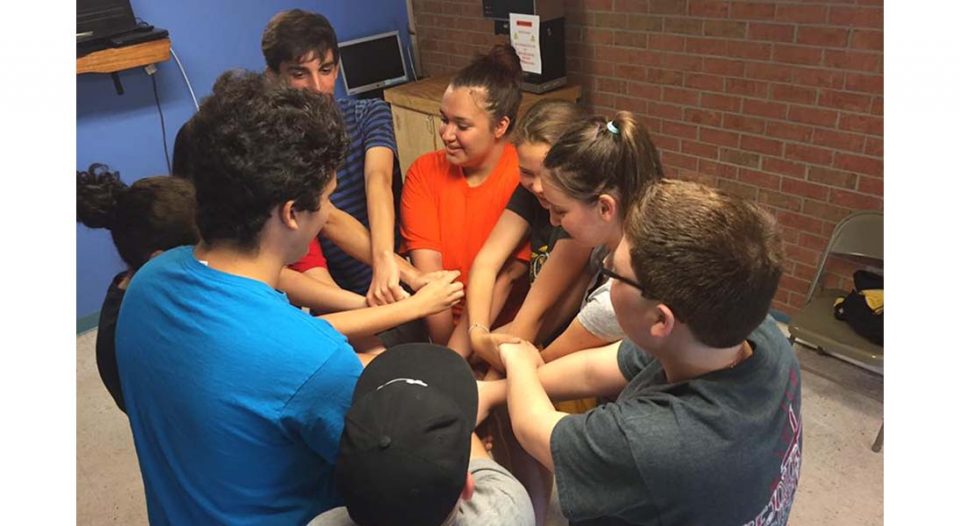A half-dozen years ago, the members of Good Shepherd Lutheran in Wilmington, Del., asked themselves: “If our congregation were gone tomorrow, who would miss it?”
“We could not think of one person who was not a part of us who would notice,” said Susan Loney, a pastor of the congregation. “That question really set our feet on fire.”
The question was part of Good Shepherd’s first steps in its work with an ELCA coaching and consulting organization known as LEAD, which is short for Living Everyday As Disciples.
LEAD is known for its ability to foster lasting, positive change through a three-year process known as the LEAD Journey. The organization aims to help congregations develop outward-focused leaders who can, in turn, steer members toward meaningful service to those around them.
LEAD’s services don’t come free, but its program directors emphasize that congregations shouldn’t view money as a barrier. “If they’re willing to do the work, we can work with them,” said Jessica Noonan, LEAD’s associate director. “If they’re willing to pray, to read, to listen, to wonder what God is up to, we can work with them—if they’re willing to know their neighbor.”
LEAD, developed in the Texas-Louisiana Gulf Coast Synod a decade ago, is built on a foundation of strategic planning. Camp Hope is key among the structures that rise from that foundation.
“LEAD is committed to developing leaders with deep, bold, consequential faith, and Camp Hope embodies all three of those.”
A summer day camp that can run from one to three weeks and up to seven hours per day, Camp Hope combines faith formation for elementary school children with leadership development for a team of high school-aged staff who run the camp under the guidance of adult mentors.
“LEAD is committed to developing leaders with deep, bold, consequential faith, and Camp Hope embodies all three of those,” said Peggy Hahn, executive director of LEAD.
With a ratio of one staff member for every three to five students, Camp Hope provides an avenue for teens to learn how to tell Bible stories and share their faith while managing their behavior and learning how to oversee campers.
“It’s not like vacation Bible school,” Hahn said. “It’s a foundation of lifelong learning for those high school students, and it’s the biggest outreach in the ELCA to youth and children in neighborhoods that are unchurched. Most of the young people who participate in Camp Hope are not church members—60% to 70% are not.”
Each day of camp emphasizes a different Bible story. “The whole day is formed around that,” Noonan said. “The opening and closing worship, snacks, games, STEM (science, technology, engineering and math), art—how does this connect to you and why does it matter? In disguise it’s a leadership school, and it’s fun to see how kids develop as leaders.”
Congregations or other organizations interested in launching their own Camp Hope can get assistance from LEAD in setting up a ministry team—usually about six people—that will guide and organize all that goes into bringing the camp to life.
“You figure out the top 10 needs around you and you invent ministries to take care of them—that’s all Jesus did.”
“It can be congregational, or sometimes three or four congregations come together to build a ministry team,” said Hahn, who has helped the camp reach multiple states and also the Dominican Republic, El Salvador, Costa Rica and Guyana. “Ideally you’ll have your first team meeting in August to have camp the following summer.”
Good Shepherd hasn’t hosted Camp Hope—not yet anyway—but LEAD’s imprint is on the congregation in many other ways. Among them is a dinner church, where members and neighbors worship around a meal prepared by the congregation.
They also started a community/church garden, with an accompanying meadow and wildlife habitat, that has generated more than a ton of produce for each of the past three growing seasons. And the congregation has added stairs leading up an embankment from a church lot used as a park-and-ride spot.
“LEAD totally retrained us to step into the process of listening for God in Scripture, in our congregation, in our community,” said Kathy Ierien, a pastor of Good Shepherd. “It helped us define our core values: serving joyfully, connecting gratefully and growing faithfully.”
Michael Rinehart, bishop of the Texas-Louisiana Gulf Coast Synod, thinks that type of listening—what LEAD refers to as the tune-in process—is what underpins everything.
“I saw a preacher one time at an event I attended who said ministry is not rocket science,” Rinehart said. “He said, ‘You figure out the top 10 needs around you and you invent ministries to take care of them—that’s all Jesus did.’ You don’t need a theology degree to do any of this.
“When a congregation gets a vision of that, then all of a sudden it becomes the church no one knew about before. All of a sudden it has presence in the community. If you turn up the heat in a congregation, stuff happens.”
For more information on LEAD, go to waytolead.org.





